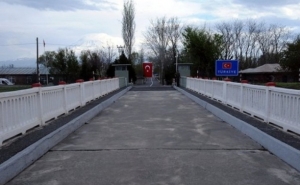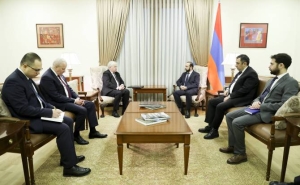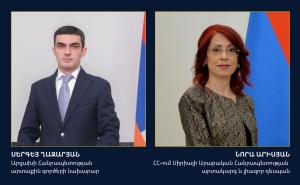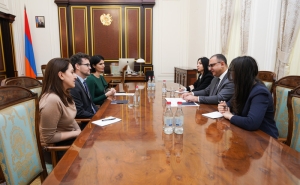 Monopolization of the Negotiation Process can Contain Dangers
Monopolization of the Negotiation Process can Contain Dangers
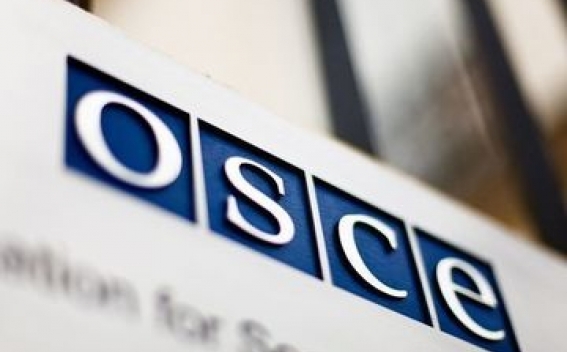
The Azerbaijani aggression against Nagorno-Karabakh Republic in early April has put the negotiation process under question – a process that was for a long time in a deadlock. Azerbaijan's statements according to which the ceasefire agreement in 1994 was denounced, today causes a greater harm not only to the negotiation process, but also to the security of the entire region.
In this process, a special activity is shown by Russia, which assumed the role of a mediator in the cease-fire reached in the beginning of April and during the numerous mutual visits took steps to resume the negotiation process and achieve concrete agreements. Information about the so-called "Lavrov plan" was widely disseminated; various options of "Madrid principles" were discussed. It is obvious for everyone that Russia is making another attempt to record success in negotiations, as it did in 2010-2011.
It is logical that in this case Russia does not act alone, but with the consent of the other two Co-Chairs of the OSCE Minsk Group - France and the United States, which in the past have periodically tried to move the negotiations forward. This is how explained the fact that the "Lavrov plan" essentially retells the "Madrid principles" with some modifications, and Lavrov constantly refers to the efforts of the Minsk Group Co-Chairs and the joint agreements. Thus, Russia is trying, with the consent of the rest, to push its own game and own interests.
However, regardless of the fact that Russia is a strategic ally of Armenia, and many Armenians liked Lavrov's statement during his visit to Armenia, the monopolization of mediation of the negotiation process by one of the countries contradicts the interests of the parties to the conflict, including Armenia and NKR.
Whether it is Russia, the United States or France - sole control of the negotiation process will mean the use of unbalanced leverage, promotion of own interests, as well as the establishment of its rules. The format of three Co-Chairs, which presents the three centers of power, was not chosen by chance. Thus, an attempt was made to ensure a balance of forces and to establish a mechanism of checks and balances. In many cases, the outcome of the settlement of the conflict, or at least, the policy pursued in relation to the parties to the conflict depends on the agreement between the mediators and the clash or the coincidence of their interests.
In terms of the settlement of the Karabakh conflict, constructive interaction of the three Co-Chairs of the OSCE Minsk Group, coordination of their activities and the existence of mutual constraints are quite important. Otherwise, the parties to the conflict will be found in a difficult situation, and the format, designed to achieve peace in the region could become a cause for a new war. Thus, it is in the interest of the parties to conflict to prevent the monopolization of the process and to ensure the involvement of all the Co-Chairs in the settlement process.
Other materials on this subject
- Russian forces have clearly failed in their duties: senators press Biden Administration to break Azerbaijan’s blockade The United States cannot stand aside while the Aliyev regime callously threatens the lives of Nagorno-Karabakh’s citizens, and must hold Azerbaijan to account for blocking a civilian population’s access...
- US calls for the full restoration of free movement through the Lachin Corridor "We remain concerned about impeded access to the Lachin Corridor and the humanitarian implications of this situation. This sets back the peace process and undermines international confidence. We call for...
- Azerbaijani forces violate the ceasefire in Artsakh The ceasefire violation was reported to the command of the Russian peacekeeping troops.
- Azerbaijani units violate ceasefire in several directions, Artsakh’s Defense Ministry says The Armenian side has no losses. The incidents of ceasefire violations were reported to the command of the Russian peacekeeping troops.
- Russian Diplomat Reassures Armenians Over Corridor In Karabakh "The parties are in direct contact, and I assure you that the peacekeepers will not move a single centimeter until there is a new corridor," Seleznyov said.
-
 17:08
17:08The regular session of the Anti-corruption Policy Council takes place in Jermuk
-
 15:05
15:05The Prime Minister sends congratulatory messages to the supreme leader of Iran and the President of Iran
-
 11:11
11:11Armenia sends earthquake aid to Turkey
-
 10:43
10:43Commemoration of the Pontiff St. Sahak Partev
-
 09:16
09:16Some roads are closed and difficult to pass in Armenia
-
 19:55
19:55Phone conversation of the Foreign Minister of Armenia with the U.S. Assistant Secretary of State for European and Eurasian Affairs
-
 18:30
18:30Prime Minister Pashinyan and President Khachaturyan meet
-
 18:20
18:20Ararat Mirzoyan with Co-Chairman of the OSCE Minsk Group of France Brice Roquefeuil
-
 17:01
17:01Humans could land on Mars within 10 years, Musk predicts
-
 16:45
16:45France, US urge 'immediate' end to Nagorno Karabakh blockade
-
 16:01
16:01Blockaded Nagorno Karabakh launches fundraiser to support quake-hit Syria
-
 15:59
15:59Earthquake death toll in Turkey rises to 18,342
-
 15:43
15:43Ararat Mirzoyan Held a Telephone Conversation with Sergey Lavrov
-
 15:06
15:06French president rules out fighter jet supplies to Ukraine in near future
-
 14:47
14:475 Day Weather Forecast in Armenia
-
 14:44
14:44President Vahagn Khachaturyan wrote a note in the book of condolences opened in the Embassy of Syria in Armenia
-
 14:20
14:20Azerbaijan’s provocations impede establishment of peace and stability – Armenian FM tells Russian Co-Chair of OSCE MG
-
 12:57
12:57France representation to OSCE: Paris calls on Azerbaijan to restore freedom of movement through Lachin corridor
-
 11:40
11:40Command of Kosovo forces highly appreciated preparation of Armenian peacekeepers
-
 10:16
10:16The United States withdrew from sanctions against Syria for six months the provision of assistance after the earthquake
day
week
month
Humidity: %
Wind: km/h


